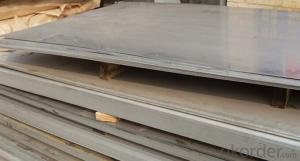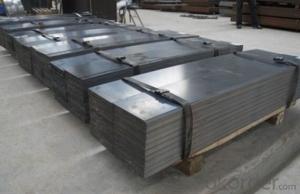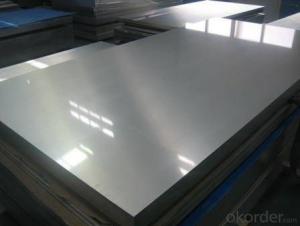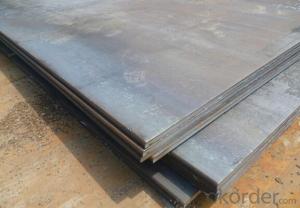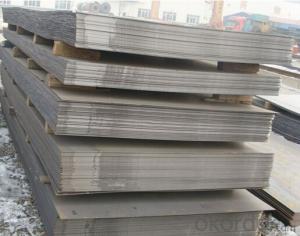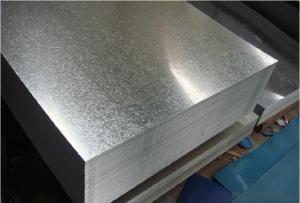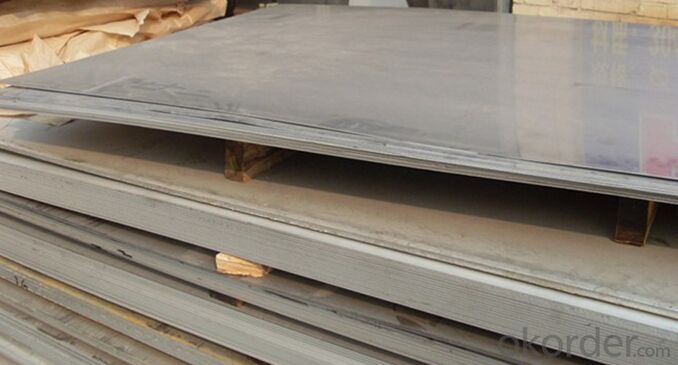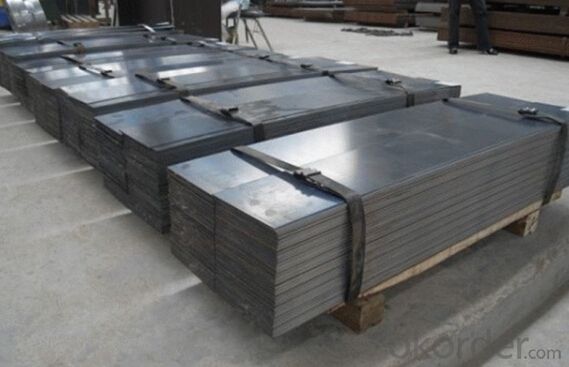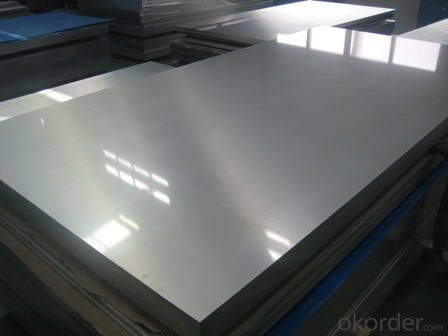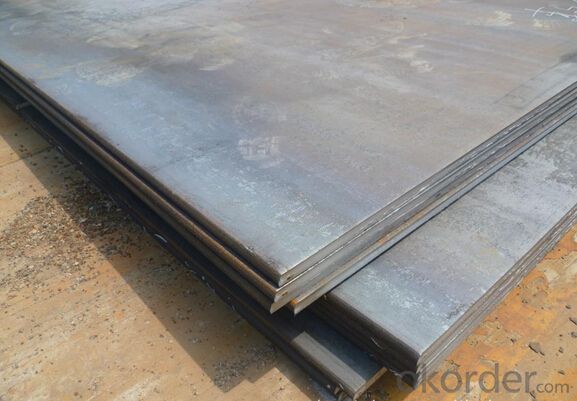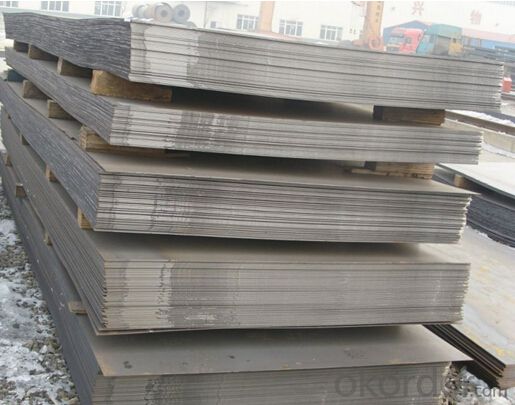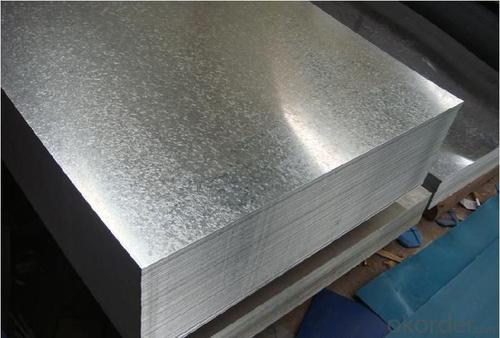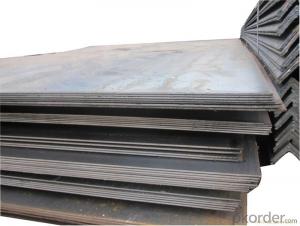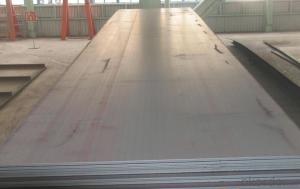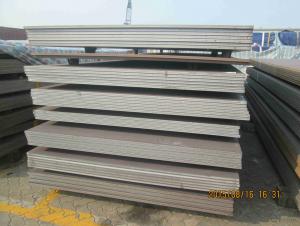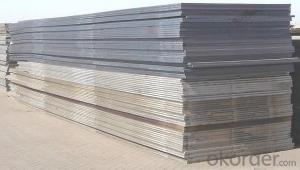Hot Rolled Carbon Steel Plate_Sheet with High Quality
- Loading Port:
- Tianjin
- Payment Terms:
- TT OR LC
- Min Order Qty:
- 3 m.t.
- Supply Capability:
- 10000 m.t./month
OKorder Service Pledge
OKorder Financial Service
You Might Also Like
Specification
Hot Rolled Carbon Steel Plate_Sheet High Quality
Standard | Steel Grade |
EN10025 | S235JR,S235J0,S235J2 |
DIN 17100 DIN 17102 | St33,St37-2,Ust37-2,RSt37-2,St37-3 StE255,WstE255,TstE255,EstE255 |
ASTM | A36/A36M A36 A283/A283M A283 Grade A,A283 Grade B, A283 Grade C,A283 Grade D A573/A573M A573 Grade 58,Grade 65,Grade 70 |
GB/T700 | Q235A,Q235B,Q235C,Q235D,Q235E |
JIS G3106 | SS330,SS400,SS490,SS540,SM400A,SM400B,SM400C |
Hot Rolled Carbon Steel Plate_Sheet High Quality
Product Name | Steel Grade | Thickness | Width | Application |
(mm) | (M) | |||
General structural steel | Q195,Q215A-Q,235A/B/C/D , | 1.9~25.4mm | 0.7~2 | Applied for |
Q275A/B/C/D, | normal construction | |||
SS330SS400SPHT1/2/3 | ||||
Q235CQ235D. | ||||
A36 | ||||
Low Carbon steel | SPCCSPHCSt12SAE1008 | 1.9~25.4mm | 0.7~2 | Applied for cold rolling |
SPHDSPCDKSt12St13 | 1.9~25.4mm | 0.7~2 | or cold forming | |
SPHESPCESt14 IF3 BH340 | 1.9~25.4mm | 0.7~2 | ||
Carbon constructional | 08-45#08Al15 AlS 20C S35C S45C | 1.9~25.4mm | 0.7~2 | After being machined |
Quality steel | K08AlZ06-10AlP | and hot treated to used | ||
as mechanical component | ||||
Low-alloy | SM490ASM490YA15Mn | 1.9~25.4mm | 0.7~2 | Applied for normal |
Constructional steel | Q345A/B/C/D/E | 1.9~25.4mm | 0.7~2 | construction |
Hot Rolled Steel | Q235 and customed. | 2.0mm~ 8.0mm | 0.9 | |
CNBM Introduction of the Hot Rolled Carbon Steel Plate_Sheet Supplier
CNBM International Corporation is the most import and export platform of CNBM group(China National Building Material Group Corporation) ,which is a state-owned enterprise, ranked in 270th of Fortune Global 500 in 2015.
With its advantages, CNBM International are mainly concentrate on Cement, Glass, Iron and Steel, Ceramics industries and devotes herself for supplying high quality series of refractories as well as technical consultancies and logistics solution.
After-sale service |
|
Advantages
|
|
Packaging & Delivery of the Hot Rolled Carbon Steel Plate_Sheet
Packaging Detail | Sea worthy packing /as per customer's packing instruction |
Delivery Detail | 15 ~ 40 days after receiving the deposit |
Products
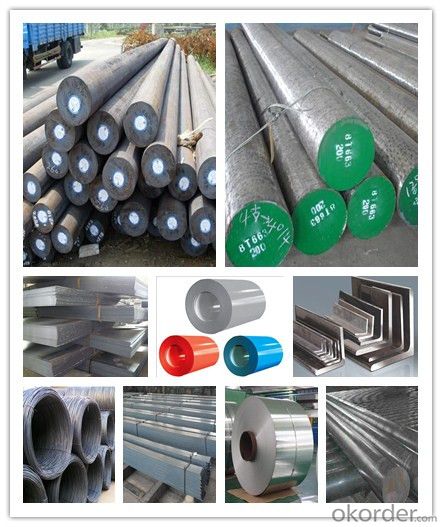
FAQ:
Are you a trading company or manufacturer? | Manufacturer |
What’s the MOQ? | 3 metric ton |
What’s your delivery time? | 15-35 days after downpayment received |
Do you Accept OEM service? | Yes |
what’s your delivery terms? | FOB/CFR/CIF |
What's the Payment Terms? | 30% as deposit,70% before shipment by T/T |
Western Union acceptable for small amount. | |
L/C acceptable for large amount. | |
Scrow ,Paybal,Alipay are also ok | |
Why choose us? | Chose happens because of quality, then price, We can give you both. Additionally, we can also offer professional products inquiry, products knowledge train (for agents), smooth goods delivery, excellent customer solution proposals. |
What's your available port of Shipment? | Main Port, China |
What’s your featured services? | Our service formula: good quality+ good price+ good service=customer's trust
|
Where are your Market? | Covering more than 160 countries in the world |
- Q: What are the different types of coatings for special steel?
- There are various types of coatings available for special steel, including but not limited to, galvanized coatings, powder coatings, epoxy coatings, zinc coatings, and chrome coatings. Each type of coating provides specific benefits such as corrosion resistance, improved aesthetics, enhanced durability, or increased heat resistance, depending on the intended application of the special steel.
- Q: What are the specific requirements for special steel used in the automotive piston industry?
- The specific requirements for special steel used in the automotive piston industry include high strength and durability, excellent wear resistance, good thermal conductivity, and the ability to withstand high temperatures and pressures. Additionally, the steel should have low thermal expansion and good machinability for ease of manufacturing and assembly.
- Q: How is high-strength stainless steel used in the production of structural components?
- High-strength stainless steel is commonly used in the production of structural components due to its exceptional durability, corrosion resistance, and ability to withstand high stress and heavy loads. It is often employed in construction, automotive, aerospace, and marine industries to create beams, columns, frames, and other critical parts that require strength and longevity. Its superior properties enable the creation of lighter, more efficient structures without compromising on safety or structural integrity.
- Q: How does special steel contribute to the manufacturing of industrial machinery?
- Special steel contributes to the manufacturing of industrial machinery by providing enhanced strength, durability, and resistance to wear and corrosion. It allows for the production of components that can withstand high temperatures, heavy loads, and harsh operating conditions. The unique properties of special steel enable the creation of precision parts, gears, bearings, and tools that are crucial for the efficient and reliable functioning of industrial machinery.
- Q: How does special steel contribute to the renewable energy sector?
- Special steel plays a crucial role in the renewable energy sector by enabling the construction of highly efficient and durable renewable energy infrastructure. It is used in the manufacturing of wind turbine components, solar panels, and hydroelectric power systems, among others. Its exceptional strength, corrosion resistance, and ability to withstand extreme conditions make it ideal for withstanding harsh weather and environmental factors. Additionally, special steel helps optimize energy conversion and transmission, ultimately improving the overall efficiency and reliability of renewable energy systems.
- Q: Can special steel be used in the plumbing industry?
- Yes, special steel can be used in the plumbing industry. It is often used in the manufacturing of pipes, fittings, and other components due to its high strength, corrosion resistance, and durability. Special steel, such as stainless steel or galvanized steel, is preferred for plumbing applications where longevity and resistance to corrosion are desired.
- Q: How does special steel contribute to the construction of infrastructure projects?
- Enhanced strength, durability, and versatility are crucial attributes of special steel that play a vital role in the construction of infrastructure projects. Specifically tailored to meet the unique demands and challenges posed by these projects, special steel is an indispensable component for their successful completion. One of the ways in which special steel contributes to infrastructure projects is through its exceptional strength. Bridges, tunnels, and high-rise buildings, among others, require materials that can endure heavy loads and harsh environmental conditions. Special steel possesses high tensile and yield strength, enabling it to bear significant loads without experiencing deformation or failure. This strength ensures the structural integrity and safety of the infrastructure, providing reassurance to engineers, architects, and the general public. Durability is another key aspect that special steel brings to infrastructure projects. These projects often face exposure to various environmental factors, including extreme temperatures, moisture, and corrosive elements. Special steel is specifically designed to resist corrosion, oxidation, and degradation, making it highly durable and capable of withstanding challenging conditions. Its long lifespan reduces maintenance and replacement costs, making it a cost-effective choice for infrastructure projects. Versatility is yet another advantage of special steel in the realm of infrastructure construction. It can be customized and fabricated into different shapes and sizes to match the specific requirements of diverse projects. Whether used for beams, columns, or reinforcements, special steel offers flexibility in design and construction. This adaptability empowers engineers and architects to create innovative and efficient infrastructure designs, optimizing space and resources. Moreover, special steel contributes to the sustainability of infrastructure projects. Its recyclability and eco-friendly nature make it an environmentally responsible choice. Steel can be recycled without compromising its properties, reducing the need for new raw materials and minimizing waste. This sustainable approach aligns with the growing emphasis on eco-friendly construction practices, positioning special steel as an ideal material for infrastructure projects. In conclusion, through its superior strength, durability, versatility, and sustainability, special steel significantly contributes to the construction of infrastructure projects. Its ability to withstand heavy loads, harsh environmental conditions, and provide long-lasting performance ensures the safety and reliability of infrastructure. Additionally, its flexibility in design and construction allows for innovative and efficient project execution. With these advantages, special steel remains an essential component in the development of robust and sustainable infrastructure.
- Q: Can special steel be used in the production of kitchen utensils?
- Yes, special steel can be used in the production of kitchen utensils. Special steel is a term used to describe steel alloys that have specific properties and characteristics, such as resistance to corrosion, high strength, and durability. These properties make special steel suitable for various applications, including the production of kitchen utensils. Kitchen utensils need to withstand regular use, exposure to water, and high temperatures. Special steel, such as stainless steel, is commonly used in the production of kitchen utensils due to its corrosion resistance and ability to withstand heat. Stainless steel utensils are known for their durability, resistance to rust, and ease of cleaning. In addition to stainless steel, there are other types of special steel that can be used in the production of kitchen utensils. For example, high carbon steel is commonly used in the production of chef knives due to its ability to maintain a sharp edge and its strength. Titanium-coated steel utensils are also available, providing additional benefits such as non-stick properties and enhanced durability. Overall, special steel is a versatile material that can be used in the production of a wide range of kitchen utensils. Its properties make it an excellent choice for manufacturers looking to produce durable and high-quality products that can withstand the demands of everyday use in the kitchen.
- Q: How does special steel perform in corrosive environments?
- Special steel is specifically designed to perform well in corrosive environments. It is made with a higher content of alloying elements such as chromium, which forms a protective oxide layer on the surface of the steel. This oxide layer acts as a barrier, preventing the steel from coming into direct contact with the corrosive elements in the environment. Additionally, special steel may also contain other alloying elements such as molybdenum, nickel, or copper, which further enhance its resistance to corrosion. These elements help to increase the steel's ability to withstand pitting, crevice corrosion, and stress corrosion cracking, which are common types of corrosion that occur in corrosive environments. Furthermore, special steel is often treated with various surface coatings or finishes that provide additional protection against corrosion. These coatings can include zinc, epoxy, or polymeric materials, which create an additional barrier between the steel and the corrosive elements. In summary, special steel performs exceptionally well in corrosive environments due to its high content of alloying elements, protective oxide layer, and additional surface coatings. It offers excellent resistance to various forms of corrosion and ensures the longevity and reliability of structures or equipment operating in such environments.
- Q: What are the properties of aluminum alloys?
- Aluminum alloys possess several properties that make them highly desirable in various industries. These properties include lightweight, excellent corrosion resistance, high strength-to-weight ratio, good formability, and electrical conductivity. Additionally, aluminum alloys can be easily cast, machined, and welded, making them highly versatile in different applications.
Send your message to us
Hot Rolled Carbon Steel Plate_Sheet with High Quality
- Loading Port:
- Tianjin
- Payment Terms:
- TT OR LC
- Min Order Qty:
- 3 m.t.
- Supply Capability:
- 10000 m.t./month
OKorder Service Pledge
OKorder Financial Service
Similar products
Hot products
Hot Searches
Related keywords
